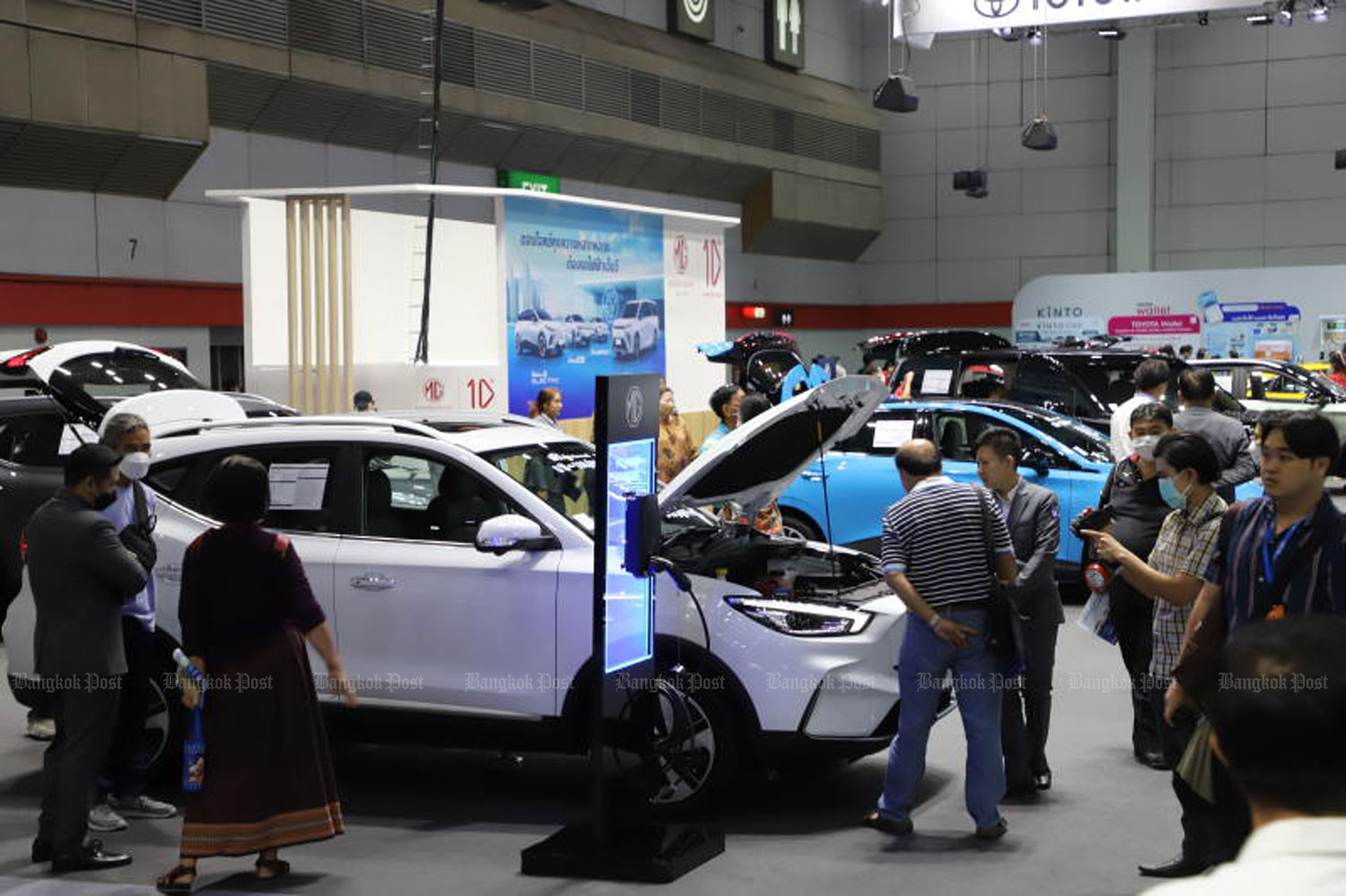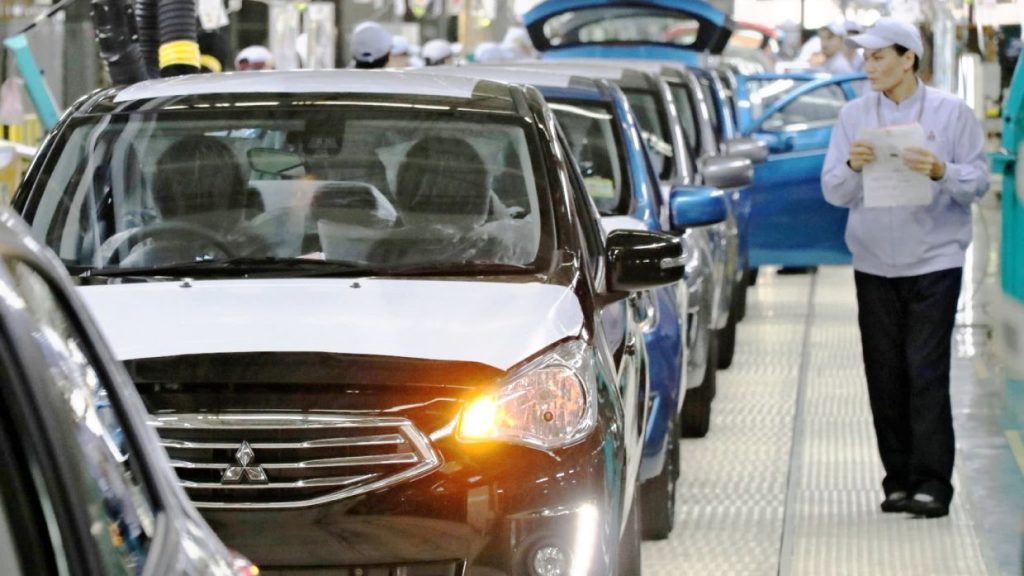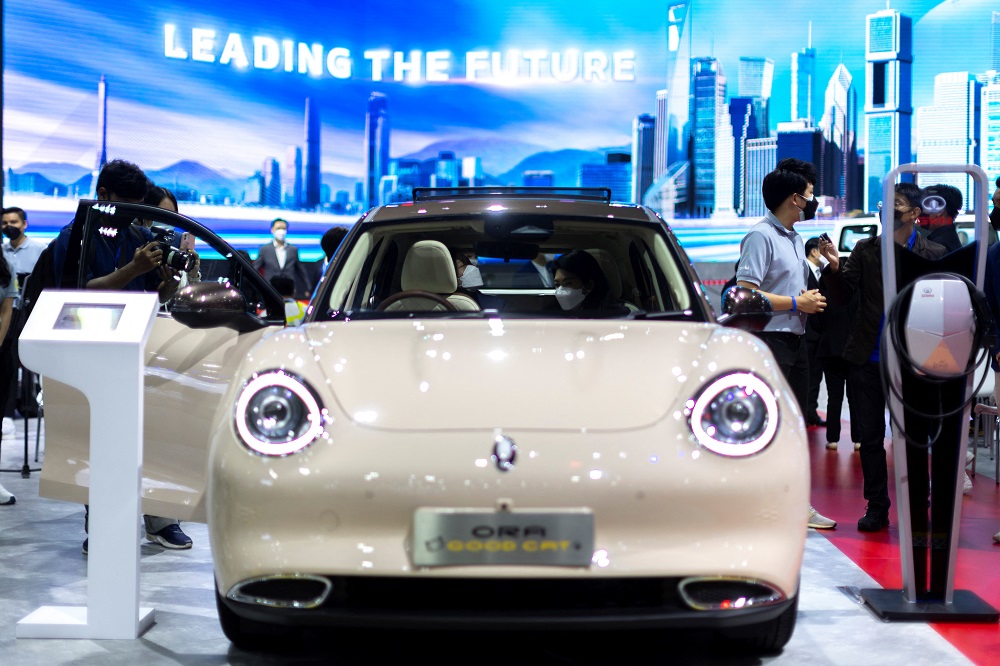Automotive
Thailand’s Vehicle Sales Drop to Lowest Level in 2 Years

Domestic vehicle sales in Thailand continued to slump, particularly in the pickup sector, falling by 26% year on year in February, the Federation of Thai Industries (FTI) reports.
The country’s total car sales fell to 52,843 units from 71,551 units the previous year.
“We are concerned about the sales decline, but we remain optimistic about economic improvements caused by state budget spending in the second half of this year,” said Surapong Paisitpatanapong, vice-chairman of the FTI and spokesman for its Automotive Industry Club.
The House of Representatives voted last week to adopt the 3.4-trillion-baht budget plan for fiscal 2024, which began on October 1 of last year, after a lengthy process to build a new coalition government following the general election.
Mr Surapong also expects the government to implement additional stimulus measures to boost the economy, which should help domestic car sales slightly.
Thailand’s car output fell 19.2% year on year to 133,690 units in the month, with export and domestic sales down 9.2% and 32.9%, respectively, according to the club. The drop was ascribed to a shortage of parts for pickup manufacturing and reduced domestic sales.
Companies curtailed passenger car production as electric vehicle (EV) imports, particularly from China, increased market share. Pickup manufacturers paused production as banks tightened lending standards for prospective pickup purchasers.
Difficulty obtaining financing remains a barrier to pickup sales, as bankers are concerned about rising family debt, which could lead to more non-performing loans, he stated.
“Pickups are a major concern. Historically, pickup sales outpaced passenger car sales. “Their sales volume is currently decreasing,” stated Mr Surapong.
Domestic car sales fell 21.4% year on year to 107,657 units in the first two months of 2019, according to the club.
Meanwhile, some big Chinese electric vehicle manufacturers are reportedly going to push Beijing to avert a “price war” among Chinese automakers in overseas EV markets, particularly Thailand, in order to maintain a positive industry image.
Two or three firms intend to speak with Chinese officials in the hopes of receiving assistance, as they believe the current harsh conditions will make their sales targets unattainable, according to Narong Sritalayon, managing director of Chinese automaker Great Wall Motor (GWM).
“Strong competition in the EV market has led to a price war, which is not good for car brands,” he added. “Cheaper prices tend to be linked to perceptions of substandard products.”
A price war in the Thai EV sector began last year when several Chinese companies slashed rates to attract customers.
Mr Narong stated that GWM will not lower its prices to compete with rivals. He stated that once it has established prices for all models, they will not alter regardless of what competitors do. According to Mr Narong, the organization prefers to tailor its services to the specific demands of its customers.
Changan Automobile, based in Chongqing, declined to comment on whether some Chinese EV manufactures had approached the government for assistance, but confirmed that price cuts were one of the techniques utilized by vehicle businesses.
“We haven’t heard about any government intervention, but price wars are common and can occur in a variety of industries,” said Shen Xinghua, managing director and president of Changan Auto Sales (Thailand), a subsidiary of Changan Automobile.
In China, EV companies are also lowering prices in an effort to boost sales, but this technique is unpopular because some of them have been losing money, he said.
According to Mr Shen, this means that vehicle firms should focus more on other marketing methods, such as providing good after-sales service.
Given the reality of free trade, he believes it will be difficult for Chinese EV manufacturers to put an end to a price war in global markets. Changan is establishing an EV facility in Rayong and plans to begin producing domestic EV vehicles in 2025.
The factory is 25% complete, according to Mr Shen.
The company is one of many Chinese EV companies showing their wares at the Bangkok International Motor Show, which begins on Wednesday. Changan’s sales objective for this year is 20,000 units, up from 3,000 in 2023.
According to Mr Narong, GWM plans to sell 25,000 vehicles locally by 2024, with overall EV sales in Thailand expected to hit 130,000 this year, up from just over 100,000 last year.



































